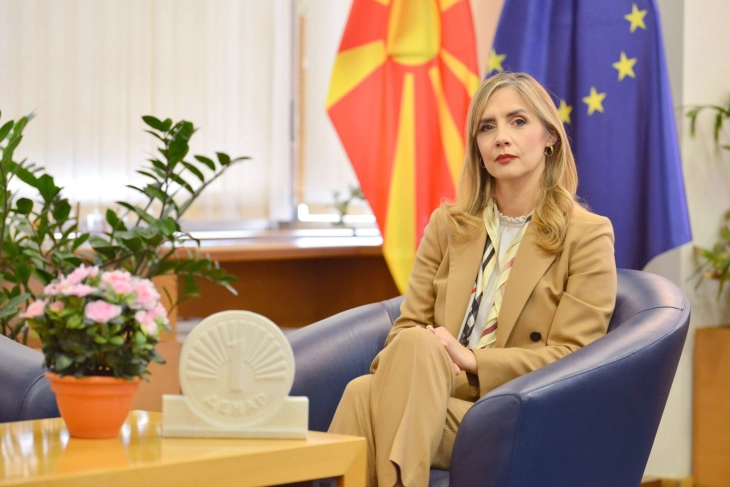National Bank Governor Angelovska Bezhoska: The denar has remained stable for decades

Skopje, 13 October 2022 (MIA) – The stability of the denar has been successfully maintained even during the ongoing economic crisis as a result of adequate level of foreign exchange reserves and central bank’s capacity to successfully defend the exchange rate of the denar. For decades, the denar to euro exchange rate, the currency of our most important trading partner. This is the most favorable monetary strategy for our economy, said the Governor of the National Bank, Anita Angelovska Bezhoska, who is participating in the 2022 Annual Meetings of the International Monetary Fund (IMF) and the World Bank Group (WBG) in Washington DC.
“The central bank has the capacity and set of instruments to defend the denar exchange rate in the past two and a half decades. In support of this, focus should be placed on the level of foreign exchange reserves, which are the key instrument that serves as a guarantee for maintaining exchange rate stability. Foreign exchange reserves are high, which is as twice as high as in 2008 - the year of global financial crisis and they are also higher compared to the pre-pandemic period. The central bank has access to a special repo line, i.e. additional foreign currency liquidity, provided by the European Central Bank. To date, the central bank has not used any funds from the approved repo line,” Governor Angelovska Bezhoska said in the interview with VOA.
Referring to the recent appreciation in the US dollar, which started at the end of last year and accelerated this year, the governor noted that there are several reasons for it.
“More affected by these trends would be those economies, which are net debtors in dollars, that is, they have larger liabilities than claims in dollars. This is not the case with the Macedonian economy, because in our country the share of dollars in the total external debt of our economy is only about 8% and it is mainly in the public sector. The participation of the dollar in the total foreign trade, exports and imports, is also relatively smaller, around 8-9 percent, while the rest of the trade is in euros, where there is a long-term stability in the denar-euro ratio and hence it is not reflected in that part of the trade,” Angelovska Bezhoska said.
Regarding the downward risks for the global economy and the impact on our economy, the Governor said that it will be very important how the European Union will deal with these shocks, as our largest trading partner, and which is very vulnerable to the energy crisis.
Governor Angelovska Bezhoska said that new macroeconomic projections of the central bank should be finalized next month.







